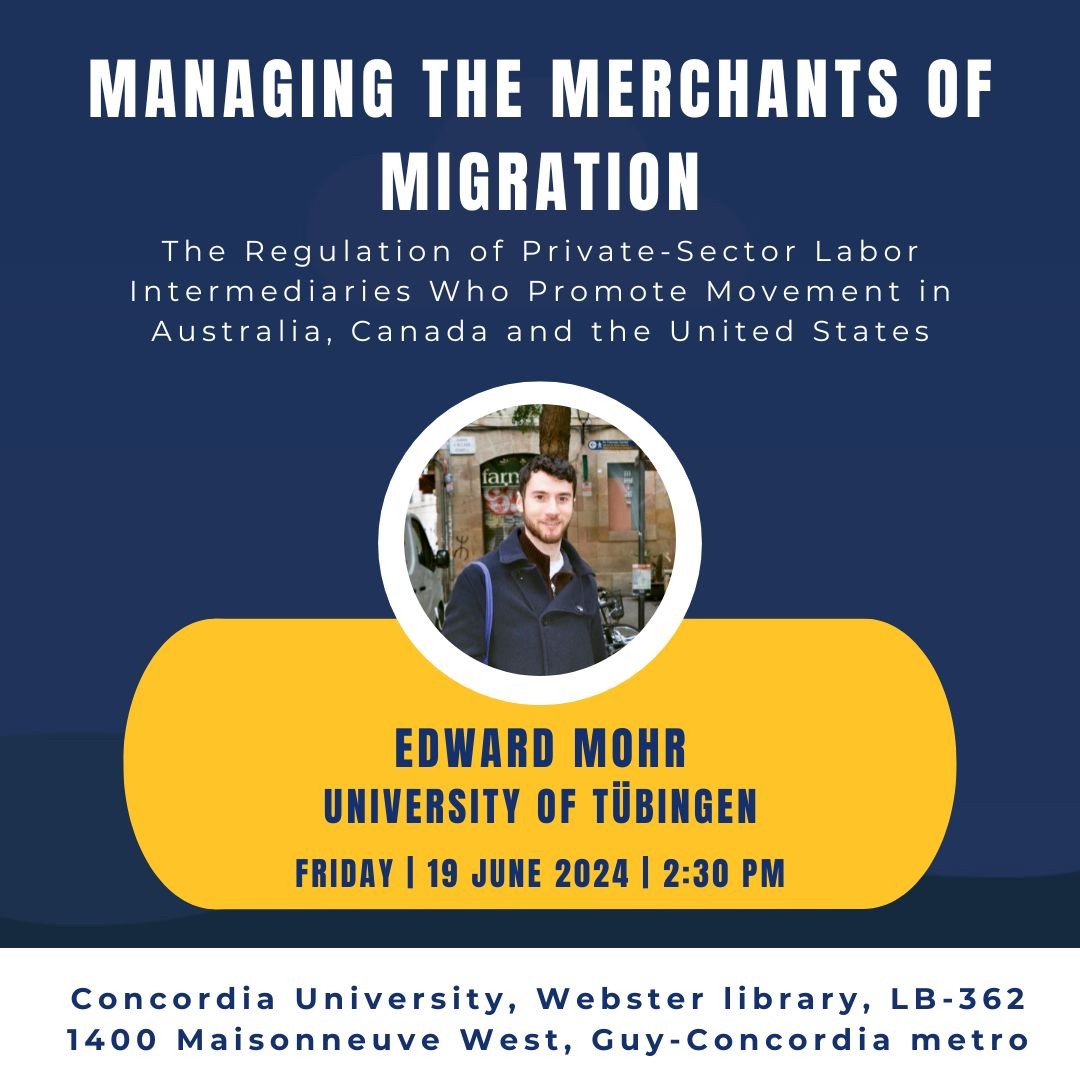Date & time
2:30 p.m. – 4 p.m.
Registration is closed
Registration is closed
Edward Mohr
This event is free
Concordia Research Chair on the Politics of Immigration
J.W. McConnell Building
1400 De Maisonneuve Blvd. W.
Room LB-362
Yes - See details

Conference by Edward Mohr, University of Tübingen, Germany
Private-sector labor intermediaries who connect individuals seeking work with employers greatly incentive movement across international borders. The last few decades in particular have seen the brokers play an increasingly key role in governing how states decide who enters their territories and how migrants are integrated into local labor markets.
Different governments both across the world and even within federations use unique regulations in altering how labor intermediaries treat migrant workers and how the brokers incentivize movement.
This presentation employs the historical comparative method to investigate what has incentivized governments over the last 125 years in Australia, Canada and the US to form unique relationships with private-sector labor intermediaries who facilitate movement.
While these settler federations all greatly rely on private-sector brokers to help immigrants and new residents find work, sub-federal governments in each of these countries employ increasingly different strategies in altering recruitment. In Victoria, Australia, the abuse of migrant workers at the hands of labor intermediaries has been increasingly defined as a problem which governments should solve, with regulations that use intra-governmental collaboration and sometimes only symbolically promote worker safety proliferating across states and most recently to the federal level.
In Ontario, Canada, organized labor has incentivized provinces to give employment intermediaries increased liability in altering how workers are moved across borders, with the result being that the role of employers in driving abuse is largely ignored. In the US, political and legal institutions have stunted state efforts to regulate labor brokers, forcing organized labor to take enforcement into its own hands with the help of insufficient punitively-oriented broker regulations.
© Concordia University